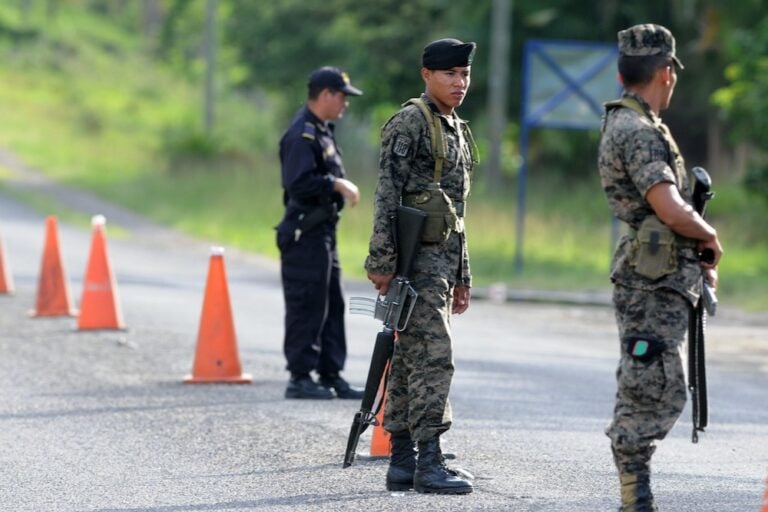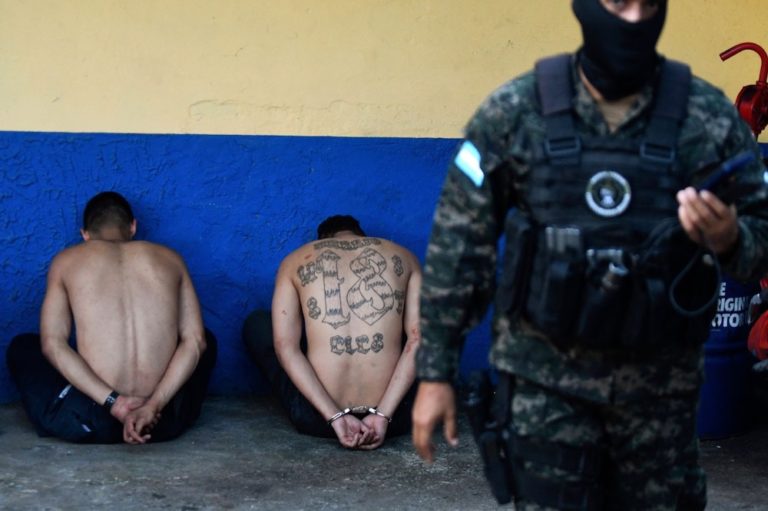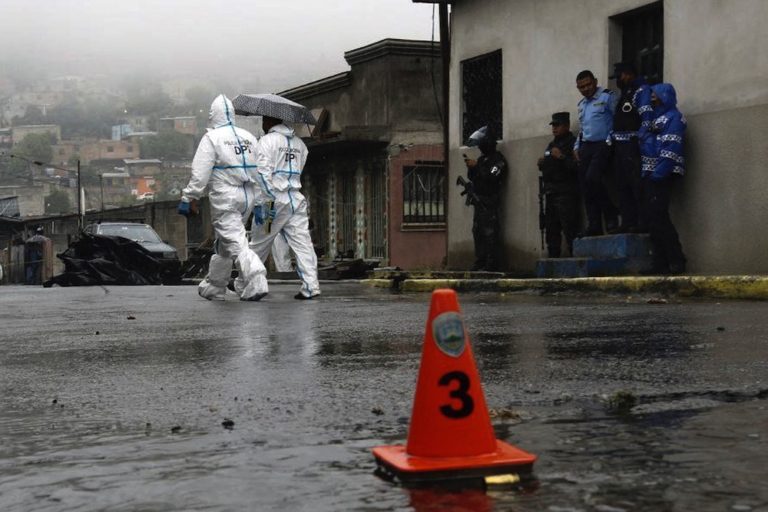IAPA has repeated its call for respect for press freedom after compiling complaints from news media and journalists saying that they are still restricted and attacked.
Complaints of restrictions on the press continue
(IAPA/IFEX) – Miami (July 2, 2009) – The Inter American Press Association (IAPA) today repeated its call to the new Honduran authorities for full respect for press freedom. The call came as the organization’s ongoing monitoring of the situation in the Central American country compiled complaints from news media and journalists saying that they are still restricted, intimidated and attacked while they attempt to report.
IAPA President Enrique Santos Calderón declared, “To guarantee the people their right to receive full information, the government should not only cease any limitations on the work of the press but should also protect and ensure that all media, no matter what their editorial policies, can work freely and in safety.”
“Freedom of the press and of expression is a shared asset belonging to all within a society,” Santos Calderón stated, “And nobody has the right to claim he has the legal authority to decide what the people or society can or must receive as information.” He cited Principle 1 of the Declaration of Chapultepec, which reads, “The exercise of this freedom (of the press) is not something authorities grant, it is an inalienable right of the people.”
The chairman of the IAPA’s Committee on Freedom of the Press and Information, Robert Rivard, editor of the San Antonio Express-News, Texas, added that “we cannot allow ourselves to be misguided by the existing polarization and permit discrimination against the media, reporters and columnists who might be on one side or the other politically.” He recalled that the basis “of press freedom is plurality and diversity” and that “in this conflict we are seeing that all reporters and editors are being affected in one way or another by the conflicting groups.”
IAPA’s concern is based on numerous actions and complaints in the wake of last Sunday’s coup d’etat, especially incidents, restrictions and censorship that the broadcast media have been subjected to. Although some television channels have returned to the air following Sunday’s suspension, including state-run Canal 8 and privately-owned Canal 6 and Canal 11, there have been complaints about control of the information being put out; international television channel Telesur, meanwhile, remains off the air.
In another offense, correspondents from The Associated Press (Esteban Félix, Nicolás García and two of their assistants) and Telesur (Adriana Sivori, María José Díaz and Larry Sánchez) were arrested on Monday while sending video and photos from a hotel room in the Honduran capital. Armed members of the military burst in and took them to the Immigration Service office. They were released after it was found they were in the country legally.
Reporters, photographers and cameramen from various news media have filed complaints of attacks with the Common Crimes Unit of the Attorney General’s Office. Among them were three reporters with the Canal 42 program “Entrevistado” (Interviewed) who were attacked on Sunday with sticks and stones by demonstrators yelling insults, who then seized and smashed their cameras. A similar situation was reported by Radio Globo in Tegucigalpa, from where journalists were temporarily taken to the local Attorney General’s Office, while Radio Progreso in El Progreso, Yoro province, was “invaded by a contingent of around 25 soldiers,” according to a press release issued by the station.
Another TV station not allowed to broadcast was Canal 66 Maya TV. In statements to the San Pedro Sula newspaper Tiempo, Eduardo Maldonado, a former presidential candidate and host of the radio and television program “Hable como Habla” (Say What You Will), reported that on Sunday “They shut us down and locked us out, saying it was on orders.” He added that although broadcasts were resumed on Monday “We didn’t put out full information, only the official line.”
Print media, while less hindered in its efforts to report the news in both its print editions and its online versions, was nonetheless not exempt from restrictions and hostility by the warring groups. Some editors, after receiving constant threats against themselves and their journalists – in their newsrooms and in cell phone messages – have decided to protect their families by moving them out of their hometowns or out of the country.
Among other developments, the San Pedro Sula newspaper La Prensa reported that on Monday a mob threw sticks and stones at the front of its building and painted slogans in support of ousted President Manuel Zelaya. News photographer Juan Ramon Sosa of La Tribuna was beaten up, insulted and had his camera taken by members of the federal police in Tegucigalpa while covering a demonstration. Meanwhile, several newspapers saw their distribution facilities damaged, from vending kiosks to delivery trucks.
Carlos Mauricio Flores, editor of the Tegucigalpa daily paper El Heraldo, confirmed to the IAPA that the daily’s reporters have received phone threats and he also revealed that last Saturday (June 27) “a self-styled People’s Commando sent to several e-mail addresses a message with degrading photos and text about at least eight journalists from independent media and called on the public to punish them.”
On a final note, the IAPA officers pointed out that many of the attacks on the Honduran press, especially those encouraged by the government, have been criticized by the organization for years now. It cited, in particular, discrimination in the placement of official advertising and the use of state resources to reward or punish journalists, as well as payments to reporters, the constant damaging remarks made about journalists and media by senior officials, the use of public media outlets as organs of propaganda, and the limitation and manipulation of official information.
In recent years a number of Honduran journalists have been forced to leave the country and there is still a high level of impunity in the unsolved cases of the murders of two journalists and two news media consultants.


